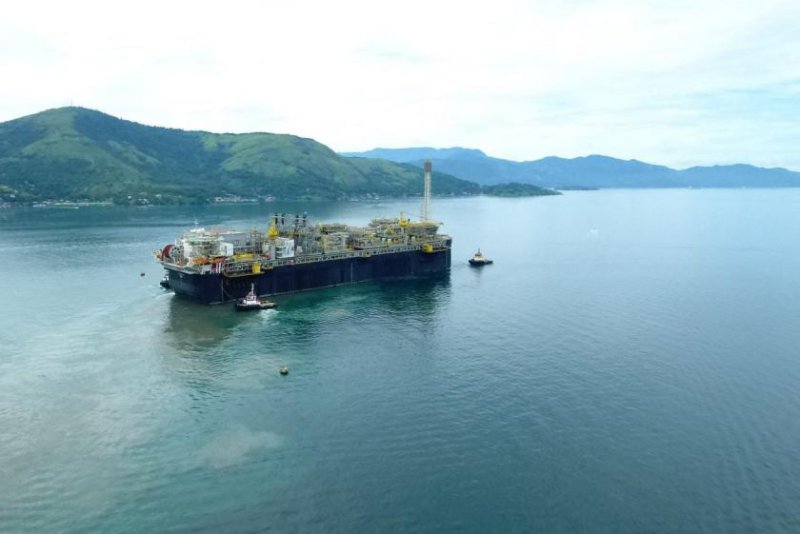Royal Dutch Shell and its partners offshore Brazil start new production in deep waters using a floating production unit. Image courtesy of Petróleo Brasileiro.
May 26 (UPI) -- Production started from a floating production platform off the coast of Brazil that can process up to 150,000 barrels of oil per day, Royal Dutch Shell said.
The company announced the consortium working in the Santos Basin off the coast of Brazil started production from the Lula South prospect using a floating production storage and offloading vessel dubbed P-66.
Positioned in waters more than a mile deep, the FPSO can process up to 150,000 barrels of oil and 210 million cubic feet of natural gas per day. Shell said P-66 is the first in a series of floating production units designated for the region.
"The consortium has additional FPSOs in this series planned over the next three-years," Andy Brown, the director of exploration and production for Shell, said in a statement. "Across Shell's deep water business in Brazil, we're investing in projects with competitive break-even prices, and our presence as Brazil's second largest oil producer continues to grow."
Shell holds an interest in several oil reservoirs off the coast of Brazil and acquired more when it merged with BG Group last year. Shell's subsidiary, BG E&P Brasil, is part of the consortium behind P-66, which is operated by Brazilian energy company Petróleo Brasileiro, known also as Petrobras.
Brazil is one of the largest oil producers that's not a member of the Organization of Petroleum Exporting Countries. In its market report for May, OPEC economists said the Latin American country is expected to contribute to robust supply performance for 2017. Non-OPEC supply is expected to increase by 950,000 barrels per day, with Brazil contributing to about 20 percent of that growth.















